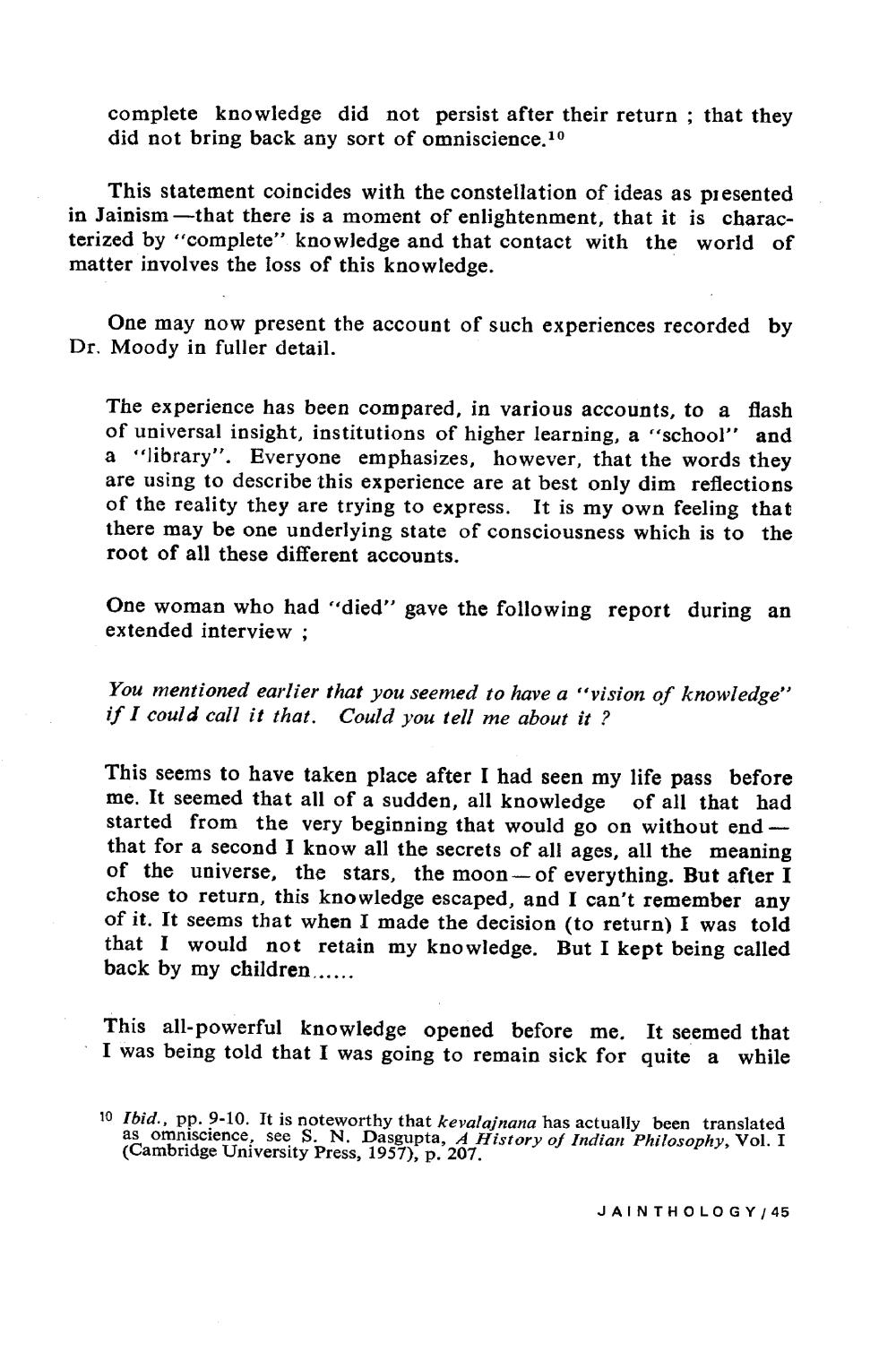________________
complete knowledge did not persist after their return; that they did not bring back any sort of omniscience.10
This statement coincides with the constellation of ideas as presented in Jainism-that there is a moment of enlightenment, that it is characterized by "complete" knowledge and that contact with the world of matter involves the loss of this knowledge.
One may now present the account of such experiences recorded by Dr. Moody in fuller detail.
The experience has been compared, in various accounts, to a flash of universal insight, institutions of higher learning, a "school" and a "library". Everyone emphasizes, however, that the words they are using to describe this experience are at best only dim reflections of the reality they are trying to express. It is my own feeling that there may be one underlying state of consciousness which is to the root of all these different accounts.
One woman who had "died" gave the following report during an extended interview ;
You mentioned earlier that you seemed to have a "vision of knowledge" if I could call it that. Could you tell me about it?
This seems to have taken place after I had seen my life pass before me. It seemed that all of a sudden, all knowledge of all that had started from the very beginning that would go on without endthat for a second I know all the secrets of all ages, all the meaning of the universe, the stars, the moon-of everything. But after I chose to return, this knowledge escaped, and I can't remember any of it. It seems that when I made the decision (to return) I was told that I would not retain my knowledge. But I kept being called back by my children......
This all-powerful knowledge opened before me. It seemed that I was being told that I was going to remain sick for quite a while
10 Ibid., pp. 9-10. It is noteworthy that kevalajnana has actually been translated as omniscience, see S. N. Dasgupta, A History of Indian Philosophy, Vol. I (Cambridge University Press, 1957), p. 207.
JAINTHOLOGY/45




